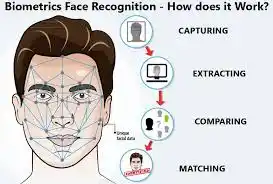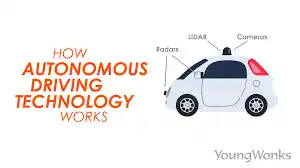Revolutionizing Homes: The Power of Internet of Things-Based Intelligent Smart Home Control Systems

The Internet of Things (IoT) has emerged as a groundbreaking concept that is transforming the way we interact with our surroundings.
One of the most remarkable applications of IoT is seen in the creation of intelligent smart home control systems.
These systems have redefined the traditional notion of home management, offering convenience, efficiency, and enhanced security.
In this article, we delve into the intricacies of IoT-based smart home control systems and their profound impact on modern living.
The Essence of IoT-Based Intelligent Smart Home Control Systems
Imagine a home where your lights adjust to your mood, your thermostat regulates the temperature based on your preferences, and your appliances function seamlessly without your intervention.
This is the essence of an IoT-based intelligent smart home control system.
At its core, this technology involves interconnecting various devices and appliances through the internet, enabling them to communicate and collaborate in a synchronized manner.
Seamless Connectivity and Convenience
Central to the functionality of these systems is their ability to connect devices and sensors through a shared network.
This connectivity allows users to control and monitor their homes remotely through smartphones, tablets, or computers.
Whether you’re adjusting the lighting, managing the security cameras, or even setting the coffee machine to brew, the power is in your hands, even if you’re miles away from home.
Enhancing Energy Efficiency
One of the prominent advantages of IoT-based smart home control systems is their contribution to energy conservation.
With real-time data and insights at your fingertips, you can optimize energy usage by adjusting lighting, heating, and cooling systems as per your needs.
The system can also detect vacant rooms and automatically reduce energy consumption, leading to a greener and more cost-effective lifestyle.
Strengthened Security Measures
Security takes center stage when discussing smart homes. These systems offer advanced security features that go beyond traditional alarm systems.
IoT-enabled devices such as smart locks, motion sensors, and security cameras can be seamlessly integrated to create a comprehensive security network.
Notifications and alerts can be sent directly to your devices, keeping you informed about any suspicious activities.
FAQs
How does an IoT-based smart home control system work?
An IoT-based smart home control system operates by connecting various devices and appliances through the internet. This interconnected network allows you to remotely monitor and control your home’s functions using smartphones or computers.
Are these systems secure against hacking and cyber threats?
Manufacturers of IoT-based smart home control systems prioritize security measures to protect against hacking and cyber threats. However, users should also take precautions such as using strong passwords, enabling two-factor authentication, and regularly updating device firmware.
Can I customize and expand my smart home system over time?
Absolutely! One of the advantages of IoT-based smart home control systems is their scalability. You can start with a few devices and gradually add more as needed. Most systems also offer compatibility with a wide range of third-party devices.
What if there’s a power outage or loss of internet connectivity?
Many IoT-based smart home control systems have built-in backup options to ensure functionality during power outages. However, internet connectivity is crucial for remote control. Some basic functions, like local lighting control, might still be accessible without an internet connection.





